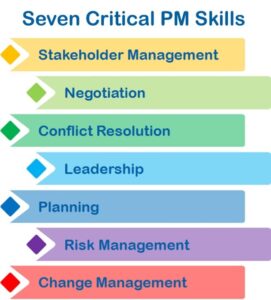PeoplePM
The Appleton Greene Corporate Training Program (CTP) for PeoplePM is provided by Ms. Kondo & Mr. Boylan Certified Learning Provider (CLP). Program Specifications: Monthly cost USD$2,500.00; Monthly Workshops 6 hours; Monthly Support 4 hours; Program Duration 14 months; Program orders subject to ongoing availability.

Personal Profile
Ms. Kondo
Ms. Kondo is the Managing Director of a global management consulting firm and has helped numerous large organizations implement complex transformation projects worldwide. She has more than 25 years of experience managing large scale systems implementation, process redesign and business reorganization projects at some of the world’s most renowned companies. Ms. Kondo’s experience spans a variety of industries including; advertising, pharmaceuticals, consumer products, government & financial services, where she has worked extensively with companies to optimize internal processes and effectively implement and manage change. She holds a Bachelor of Science in Electrical Engineering from Princeton University and an MBA from Columbia University.
Mr. Boylan
Mr. Boylan is the President and CEO of a global management consulting firm and has helped numerous large organizations implement complex transformation projects worldwide. He has more than 30 years of hands-on experience in strategy development, business restructuring and change management, spanning numerous vertical industries and all major global markets. Patrick holds a Bachelor of Surveying from the University of NSW Sydney, a post graduate degree in Economics from the University of Technology Sydney, and an MBA from the Australian Graduate School of Management.
To request further information about Ms. Kondo & Mr. Boylan through Appleton Greene, please Click Here.
(CLP) Programs
Appleton Greene corporate training programs are all process-driven. They are used as vehicles to implement tangible business processes within clients’ organizations, together with training, support and facilitation during the use of these processes. Corporate training programs are therefore implemented over a sustainable period of time, that is to say, between 1 year (incorporating 12 monthly workshops), and 4 years (incorporating 48 monthly workshops). Your program information guide will specify how long each program takes to complete. Each monthly workshop takes 6 hours to implement and can be undertaken either on the client’s premises, an Appleton Greene serviced office, or online via the internet. This enables clients to implement each part of their business process, before moving onto the next stage of the program and enables employees to plan their study time around their current work commitments. The result is far greater program benefit, over a more sustainable period of time and a significantly improved return on investment.
Appleton Greene uses standard and bespoke corporate training programs as vessels to transfer business process improvement knowledge into the heart of our clients’ organizations. Each individual program focuses upon the implementation of a specific business process, which enables clients to easily quantify their return on investment. There are hundreds of established Appleton Greene corporate training products now available to clients within customer services, e-business, finance, globalization, human resources, information technology, legal, management, marketing and production. It does not matter whether a client’s employees are located within one office, or an unlimited number of international offices, we can still bring them together to learn and implement specific business processes collectively. Our approach to global localization enables us to provide clients with a truly international service with that all important personal touch. Appleton Greene corporate training programs can be provided virtually or locally and they are all unique in that they individually focus upon a specific business function. All (CLP) programs are implemented over a sustainable period of time, usually between 1-4 years, incorporating 12-48 monthly workshops and professional support is consistently provided during this time by qualified learning providers and where appropriate, by Accredited Consultants.
Executive summary
PeoplePM
The PeoplePM course gives participants a simple process driven approach for successfully getting project work done in complex organizations.
We often hear about the high rate of project failure. Everyone at some time has probably been involved in a project that didn’t quite work out, and the statistics are truly dismal:
• McKinsey reports that on average large IT projects run 45% over budget and 7% overtime while delivering 56% less value than predicted.
• IAG Consulting estimated that 80% of projects are late, over budget, short of expectations or simply underdelivered
• A ZDNet report stated that only 39% of complex projects succeed while 43% are challenged and 18% fail.
• A Harvard Business Review report concluded that one in six IT projects have a cost overrun of 200% and a schedule overrun of 70%
• A McKinsey-Oxford study reported that; 25% of technology projects fail outright, 20%-25% don’t provide a return on investment and 50% need to be restructured before completion.
• WRIKE reports that only 64% of projects meet their goals while organizations lose $109 million for every $1 billion invested in projects and programs
• Gartner estimates that between 55% and 75% of all ERP software projects will fail to meet their objectives.
Would you get on an airplane if your chances of getting to the other side were this bad? Probably not, yet companies continue to undertake projects that would seem almost certain to fail. Project failure is a huge pain point for all large complex organizations.
The problem is that many techniques deployed by project managers aren’t all that helpful in large complex organizations. After all, traditional project management techniques were developed for large scale construction-like projects in areas such as highway development and the aerospace program. These types of projects are undertaken in a much more structured and static environment than what is usually encountered in the daily operations of any large organization. What traditional project management provided was an approach to coordinate a large number of dependent activities to complete a project within a specified timeframe and budget. Hence, the emphasis on gantt charts, resource levelling and variance analysis.
Even if the traditional approach may be somewhat suitable for some projects within organizations (i.e. software development) it is certainly not suitable for the majority of organization change or transformation projects. This is because the environment encountered when implementing large change projects into any complex organization is full of conflict, differing priorities and office politics that constantly ebb and flow. It’s not going to matter that you are using a well defined project management methodology if a group of critical stakeholders are not on board and are actively trying to undermine your transformation project. Indeed, beyond being just ineffective, traditional project management approaches can often generate a level of project bureaucracy that actually destroys value. Project managers can become less of a “manager” and more of a “project administrator” where the administrative function of the project management office seems to take priority over the projects themselves.
This is why we created PeoplePM. To change the behavior of project managers so that they have the ability to successfully deliver projects in complex organizations. PeoplePM is less about project methodology and more about the skills of a project manager. It’s not that project methodology is not important, it’s just that the skills of the project manager become increasingly more important as the project environment becomes more dynamic. A methodology can’t be expected to foresee all issues on a project no matter how comprehensive, but a skilled project manager can be expected to adjust to situations as they arise and manage the project forward.
The PeoplePM program improves seven critical skills that all project managers need to possess to successfully deliver projects in complex organizations.

These are common skills required by all project managers, but their need will vary from project to project, situation to situation. This is why developing these skills is so challenging because they need to be constantly adapted to the situation at hand. Stakeholder management on one project will probably not be the same as stakeholder management on another project. To overcome this problem the PeoplePM program does not just teach skills, rather it changes underlying behavior by first developing core behavioral attributes such as anticipation, empathy or pragmatism as building blocks to then develop the seven critical project management skills. To achieve this outcome the program combines a proven learning approach with artificial intelligence to give project managers the capabilities they need to successfully complete projects in complex organizations.
Curriculum
PeoplePM – Part 1- Year 1
- Part 1 Month 1 Introduction & Diagnostic
- Part 1 Month 2 Project Management Fundamentals
- Part 1 Month 3 Anticipation
- Part 1 Month 4 Pragmatism
- Part 1 Month 5 Organization
- Part 1 Month 6 Communication
- Part 1 Month 7 Empathy
- Part 1 Month 8 Stakeholder Management
- Part 1 Month 9 Negotiation
- Part 1 Month 10 Conflict Resolution
- Part 1 Month 11 Leadership
- Part 1 Month 12 Planning
- Part 1 Month 13 Risk Management
- Part 1 Month 14 Change Management
Program Objectives
The following list represents the Key Program Objectives (KPO) for the Appleton Greene PeoplePM corporate training program.
PeoplePM – Part 1- Year 1
- Part 1 Month 1 Introduction & Diagnostic – The first workshop will provide an introduction to PeoplePM and the approach used throughout the course. The main objective will be to provide participants with an understanding of PeoplePM concepts and how the PeoplePM process driven approach can successfully get project work done in complex organizations. Specific areas of focus will include: how the five PeoplePM behavior attributes were identified and why they are important, how PeoplePM behavior attributes can be combined to create other relevant behaviors such as Stakeholder Management or Negotiation for project managers, how the READY-THINK-ACT construct is used to create “Behavior Blueprints” for each attribute, how PeoplePM is a fundamental process driven approach for solving problems, how the Behavior Blueprints can be transformed into templates for every day use, how the Behavior Blueprint Templates can be used in a case study to solve problems, completing a Diagnostic assessment to define the participant’s baseline capability across the PeoplePM behavior attributes
- Part 1 Month 2 Project Management Fundamentals – The concepts in the PeoplePM course are most relevant to Project Managers who have an understanding of project management and have previously run projects. The main objective of this workshop is to outline basic project management concepts so that all participants are on the same page. Specific areas of focus will include: outlining the basic components of a project plan and how to develop one, how to develop a business case and track financial performance against it, ensuring your project has the correct resources, consider different governance structures and how set up the most effective governance structure for your project, identify and classify the stakeholders on your project, what needs to be considered for a communication plan and how to develop one, types of communication approaches that will be effective with your stakeholders, how to track the status of your project that is relevant but not bureaucratic
- Part 1 Month 3 Anticipation – Project managers are faced with constant change. It is critical to be able to anticipate changes before they happen to coordinate activities and effectively manage risk. The main objective of this workshop is to provide participants with an approach to use Anticipation on projects. Specific areas of focus will include: consider how ‘futurists’ predict the future, review selected futures techniques, consider the ‘real’ implications of your objectives, develop mitigation approaches to manage potential derailers, utilize enablers to achieve maximum benefit, use anticipation for better risk management, develop the Anticipation Behavior Blueprint from first principles, utilize a case study to apply the Anticipation Behavior Blueprint, utilize a real life example to apply the Anticipation Behavior Blueprint
- Part 1 Month 4 Pragmatism – Project managers need to make pragmatic decisions on a daily basis in often time constrained environments to ensure projects keep moving forward. The main objective of this workshop is to provide participants with an approach to use Pragmatism on projects. Specific areas of focus will include: consider the decision making process, review selected decision making & analysis methods, identify & prioritize the right decision criteria, develop a process to make decisions & assess objections, develop the Pragmatism Behavior Blueprint from first principles, utilize a case study to apply the Pragmatism Behavior Blueprint, utilize a real life example to apply the Pragmatism Behavior Blueprint
- Part 1 Month 5 Organization – Project managers need to be organized to ensure project efficiency. The main objective of this workshop is to provide participants with an approach to use Organization on projects not only for the team but also for themselves. Specific areas of focus will include: work smarter, not just harder, consider organization tools & techniques, select the time management technique that is right for you, get situations under control, ‘change the game’ by reducing the urgency &/or effort of a task, develop the Organization Behavior Blueprint from first principles, utilize a case study to apply the Organization Behavior Blueprint, utilize a real life example to apply the Organization Behavior Blueprint
- Part 1 Month 6 Communication – Project managers need to communicate to convey status, translate objectives and manage issues. The main objective of this workshop is to provide participants with an approach to use Communication on projects. Specific areas of focus will include: understand that communication is much more than outward verbal expression, consider the other party before making any communication, focus on structure to ensure your message is easily understood, develop a simple process to ensure you get your point across every time, develop the Communication Behavior Blueprint from first principles, utilize a case study to apply the Communication Behavior Blueprint, utilize a real life example to apply the Communication Behavior Blueprint
- Part 1 Month 7 Empathy – Project managers get work done through other people and so need to understand the needs & behaviors of those around them. The main objective of this workshop is to provide participants with an approach to use Empathy on projects. Specific areas of focus will include: consider the role of emotional intelligence, assess the personal traits & situation of other people before acting, develop a process to define what you need and then determine who can help you, develop action plans to get what you want, develop the Empathy Behavior Blueprint from first principles, utilize a case study to apply the Empathy Behavior Blueprint, utilize a real life example to apply the Empathy Behavior Blueprint
- Part 1 Month 8 Stakeholder Management – Stakeholders are critical to any complex organization project and so a project manager needs to know how to effectively manage them. The main objective of this workshop is to provide participants with an approach to use Stakeholder Management on projects. Specific areas of focus will include:identify and classify the different stakeholders on a project, consider how different stakeholders will need to be managed in different ways, consider the combination of PeoplePM behavior attributes required for effective Stakeholder Management, develop a Behavior Blueprint for Stakeholder Management, utilize the PeoplePM AI Assistant on a case study to apply the Stakeholder Management Behavior Blueprint, utilize the PeoplePM AI Assistant on a real life example to apply the Stakeholder Management Behavior Blueprint
- Part 1 Month 9 Negotiation – Projects are always full of issues that need to be resolved. This often requires an effective project manager to negotiate between different parties. The main objective of this workshop is to provide participants with an approach to use Negotiation on projects. Specific areas of focus will include: review different negotiation techniques, consider what needs to be negotiated by a project manager and what needs to be escalated, consider the combination of PeoplePM behavior attributes required for effective Negotiation, develop a Behavior Blueprint for Negotiation, utilize the PeoplePM AI Assistant on a case study to apply the Negotiation Behavior Blueprint, utilize the PeoplePM AI Assistant on a real life example to apply the Negotiation Behavior Blueprint
- Part 1 Month 10 Conflict Resolution – Large complex projects always seem to operate in stress filled environments. Conflict is almost certain at some stage and an effective project manager needs to be able to resolve conflict between different parties. The main objective of this workshop is to provide participants with an approach to use Conflict Resolution on projects. Specific areas of focus will include: review the reasons why conflict arises on projects, assess the common responses to conflict and resultant impact on a project, consider how the Anticipation behavior is key to mitigating conflict before it arises, consider the different types of conflict resolution techniques, consider the combination of PeoplePM behavior attributes required for effective Conflict Resolution, develop a Behavior Blueprint for Conflict Resolution, utilize the PeoplePM AI Assistant on a case study to apply the Conflict Resolution Behavior Blueprint, utilize the PeoplePM AI Assistant on a real life example to apply the Conflict Resolution Behavior Blueprint
- Part 1 Month 11 Leadership – Project managers are the leader of their project team. Since they often do not have direct management control over any of the resources on their project, they need to possess exceptional leadership skills to get the most out of the team. The main objective of this workshop is to provide participants with an approach to use Leadership on projects. Specific areas of focus will include: consider the different types of ‘power bases’ that are available to lead, review different approaches to hold team members accountable, consider the combination of PeoplePM behavior attributes required for effective Leadership, develop a Behavior Blueprint for Leadership, utilize the PeoplePM AI Assistant on a case study to apply the Leadership Behavior Blueprint, utilize the PeoplePM AI Assistant on a real life example to apply the Leadership Behavior Blueprint
- Part 1 Month 12 Planning – A fundamental part of project management is planning. More important than the use of project management software is the ability for a project manager to break down future work and anticipate the issues and implications that future activities will generate. The main objective of this workshop is to provide participants with an approach to use Planning on projects. Specific areas of focus will include: develop an approach to define the implications of planned actions, understand the importance of including enabling and mitigating activities to ensure project success, consider the combination of PeoplePM behavior attributes required for effective Planning, develop a Behavior Blueprint for Planning, utilize the PeoplePM AI Assistant on a case study to apply the Planning Behavior Blueprint, utilize the PeoplePM AI Assistant on a real life example to apply the Planning Behavior Blueprint
- Part 1 Month 13 Risk Management – Risk management is key to successfully navigating the inevitable issues that will arise during a project. This will require a project manager to define, analyze and manage risk. The main objective of this workshop is to provide participants with an approach to use Risk Management on projects. Specific areas of focus will include: develop an approach to identify risks, consider how to use enabling and mitigating actions to manage risk, consider the combination of PeoplePM behavior attributes required for effective Risk Management, develop a Behavior Blueprint for Risk Management, utilize the PeoplePM AI Assistant on a case study to apply the Risk Management Behavior Blueprint, utilize the PeoplePM AI Assistant on a real life example to apply the Risk Management Behavior Blueprint
- Part 1 Month 14 Change Management – The majority of large organization projects are fundamentally about implementing change into an organization. Project managers need to be effective change managers to drive these projects to success. The main objective of this workshop is to provide participants with an approach to use Change Management on projects. Specific areas of focus will include: consider the different change management stages an organization goes through, understand why a change manager is much more valuable to an organization than a project manager, consider the combination of PeoplePM behavior attributes required for effective Change Management, develop a Behavior Blueprint for Change Management, utilize the PeoplePM AI Assistant on a case study to apply the Change Management Behavior Blueprint, utilize the PeoplePM AI Assistant on a real life example to apply the Change Management Behavior Blueprint, make the PeoplePM approach part of your daily problem solving regime, take the PeoplePM Diagnostic and compare to the result at the beginning of the course
Methodology
PeoplePM
Bloom’s Taxonomy is the underlying methodology used to teach the PeoplePM program.
The taxonomy is a framework of educational goals and is used for the classification of learning objectives from simple to complex. The framework starts with basic remembering or recollection of facts through the ability to apply and analyze a concept and ultimately to the ability to create new or original work based on knowledge learned.
The taxonomy has been used to guide the development of the PeoplePM program.
IMAGE TOO DETAILED
Each of the workshops commences with a Theory section where participants learn a basic understanding of the Five PeoplePM Attributes. Exercises are used throughout the session to test a participant’s understanding of the material. A participant’s ability to Apply and Analyze using PeoplePM concepts are then introduced through innovative Behavior Blueprints that lead a participant through the behaviors required for each of the PeoplePM Attributes. The Behavior Blueprints follow a standard construct of READY-THINK-ACT which gives participants a structured way to behave. The “READY-THINK-ACT” construct provides a simple structure for how a problem should solved: get yourself ready, think about what you need to do, and then do it. The “Behavior Blueprints” then outline step by step guides for the way people should think & act for each of the PeoplePM attributes. When used in conjunction with case study material and workbook templates they provide an approachable way for participants to embed the principles of PeoplePM.
IMAGE TOO DETAILED
Participants continue to move up the Bloom’s Taxonomy pyramid and are then asked to Personalize their learning by applying the concepts to a real life situation. This same learning process is followed in five separate workshops for each of the five PeoplePM Attributes and provide the foundational building blocks for the higher level learning to follow.
With the foundation provided by the PeoplePM Attributes in place, course participants then move onto the highest level of Blooms Taxonomy to Create the Seven Critical PM Skills. The ability to create new content gives participants the deepest level of understanding and also aligns with the dynamic nature of the Critical PM Skills that constantly need to be adapted to the situations encountered by project managers in complex organizations. Rather than being given a fish, participants are now taught how to fish.
The same basic learning approach is used for the Seven Critical PM Skills. This involves Theory & Exercises to give a basic Understanding, Behavior Blueprints and a Case Study to ensure participants can Apply and Analyze the concepts, before finishing with a Personal situation. However, a critical difference is that the Workbook Templates are now dispensed with and replaced by the PeoplePM AI Assistant. The workbooks are a great tool to teach first principles but are not really suitable for daily use. The PeoplePM AI Assistant is a proprietary artificial intelligence tool that guides a PeoplePM trained practitioner quickly through the PeoplePM approach for a particular problem and can become an indispensable aide to reaching a level of enhanced project management capability.
IMAGE TOO DETAILED
Industries
This service is primarily available to the following industry sectors:
Financial Services
The financial services industry is a vast but relatively undefined business sector that includes many different types of organizations. These include; commercial banks, investment banks, credit card companies, insurance companies, stock brokerage firms, investment funds, investment managers, financial advisors, accounting firms and an array of consumer finance entities offering or arranging finance for many different types of consumers.
The total size of the financial services market is huge and was estimated to be $23.3 trillion in 2022 with some forecasts expecting it to grow to over $37 trillion by 2026. The majority of financial services firms generate revenue through commissions, interest payments, transaction charges or fees. Financial services are offered to small, medium and large entities and include governments, corporations and individuals. Transactions between financial services institutions are also common. The financial services industry is often referred to as a foundation industry since it supports the operations of other industries through financial transaction processing and the provision of capital.
The industry can also be broken down by size and varies from many small specialist entities providing advice for a fee to very large organizations that generate small amounts of revenue per transaction from a large number of transactions. Large financial institutions are some of the largest organizations in the world.
To meet competitive challenges, many of these large financial organizations have undertaken continuous rounds of productivity improvement, cost reduction and the outsourcing of back office functions. The modern financial services industry is totally reliant on information technology to operate and many change initiatives are driven by the implementation of advanced technology to improve operational effectiveness or customer satisfaction. The protection of personal data and financial information is also another area of continuous improvement within financial services organizations.
The PeoplePM program is perfectly suited to large complex financial organizations that need to successfully implement change across their vast enterprises. The program is built to provide project managers with the skills needed to implement change into large complex people oriented organizations.

Marketing & Communications
The marketing & communications industry has a broad definition that covers many different organization types including; advertising agencies, public relations firms, media services entities and market research firms.
The marketing & communications market is huge with ad media spend estimated to be over $850 billion in 2023 and forecasted to surpass $1 trillion by 2026. The rise of the internet is a key driver of growth and digital advertising is expected to account for over 65% of expenditure in 2024 with television (21%), outdoor (5%) and radio (4%) following behind. The United States is easily the largest advertising market and with an estimated expenditure of over $360 billion in 2024 it is larger than the next 10 country markets combined.
The industry has traditionally been dominated by large global holding companies such as; WPP, Omnicom, Publicis, Interpublic and Dentsu which hold a number of relatively independent operating companies providing a variety of services to the market often in competition with each other. This industry structure was maintained for many decades during the TV, print & radio era when advertising revenues were largely based on a cost-plus retainer arrangement with less focus on return on investment and metrics of marketing performance.
The advent of new marketing channels in the digital space has caused profound changes to sweep through the industry and technology based enterprises such as Google, Meta and even some technology consulting firms have expanded their presence in the industry. The new digital marketing channels offer a more targeted advertising approach, improving the ability to assess return on investment and the performance of marketing campaigns. In addition to the threat from these new entrants, many traditional buyers of marketing services have also built out their own internal departments to meet the specific marketing needs of their own organizations.
In response to these changes the holding companies are in the process of major transformation. Consolidation of operating companies within holding companies is being undertaken to reduce cost and remove duplicate offerings. Initiatives such as back office consolidation and outsourcing are now common place to reduce cost. More subtle changes are also being undertaken where old approaches are being redesigned, such as the “traffic” function within advertising agencies that used to manage the throughput of work is now being re-thought with an increased focus on better project management to plan, estimate and manage work across disciplines. Strategies are also being developed to not only compete with but also work with the new non-traditional entrants in the modern digital era.
The PeoplePM program is ideal for organizations in the marketing & communications industry. It is perfectly suited to large complex holding companies that need to not only manage their own internal transformation projects but also develop the ability to successfully manage the advertising projects of their clients.
Locations
This service is primarily available within the following locations:

New York
New York City is the most populous city in the United States. It has a population of over 8.3 million spread across the five boroughs according to the 2022 census and over 20 million in its greater metropolitan area. It has the highest GDP of any major city in the United States at over $880 billion (2021).
The city has served as a gateway to the United States for centuries and the huge number of immigrants that remained in the city have transformed it into a global multinational hub. The city is the most linguistically diverse city in the world with an estimated 800 languages across the five boroughs. The headquarters of the United Nations is located in the city and as such is a focal point for international diplomacy.
The city is often referred to as the financial capital of the world and the New York Stock Exchange and Nasdaq are the world’s largest stock exchanges by both market capitalization and volume. Wall Street is known the world over for investment banking and financial services and this sector is the driving force behind the city’s economy
In addition to the finance sector, other industries play a major part in the city’s economy and include; advertising, law, accounting, insurance, media, technology, tourism, fashion and the performing arts. In 2022 a total of 43 Fortune 500 corporations had their headquarters in New York City which is more than double the next most common city in the United States.

Washington DC
Washington DC is the capital of the United States and is one of the world’s most important capitals. The District of Columbia is a federal district outlined specifically in the US Constitution under the jurisdiction of the US Congress. It is not an independent state or part of any other state.
The city is divided into quadrants with the Capitol at the center. According to the 2020 census, the city had a population of just under 700,000 which ranks it as the 23rd most populous city in the United States. The Washington DC metropolitan area, however, which includes parts of Maryland, Virginia, and West Virginia, is the country’s 6th largest metropolitan area with a 2020 population of just under 6.4 million residents. The metropolitan area had a GDP of $607 billion in 2021 which ranked it 5th in the nation, and is relatively wealthy compared to the rest of the nation with a 4th ranking for median household income ($110,355).
Washington DC’s economy is primarily driven by the US Federal government. About 25% of people employed in Washington work directly for the federal government. The largest U.S. government agencies are: the United States Department of Defense, the United States Postal Service, the United States Department of Veterans Affairs, and the United States Department of Homeland Security. In addition, many of the region’s residents work for organizations that are contracted to work for the federal government. These include; law & accounting firms, defense contractors, nonprofit organizations, lobbyists, and other professional associations.
Tourism is the city’s second largest industry with over 20.7 million tourists visiting the city in 2022. In total tourists spent over $8.1 billion and supported over 84,000 jobs across the metropolitan area. Washington DC is world renowned for its many museums, attractions and cultural centers.
Washington DC is a leading center for research organizations, think tanks and non-profit organizations. Some of the most well known think tanks include; the Carnegie Endowment for International Peace, The Heritage Foundation, Center for Strategic and International Studies, and Peterson Institute for International Economics. The city also has many non-profit organizations that conduct research and advocate on behalf of people and social issues. Some of the leading non-profits include; Amnesty International, the UN Foundation, Human Rights Campaign, and the National Endowment for Democracy.
The financial sector in Washington DC is also significant but is primarily driven by government related financial institutions such as; the Federal Reserve Board, the Federal Deposit Insurance Corporation, the World Bank, the International Monetary Fund, and the Inter-American Development Bank.

Boston
Boston is the capital and largest city in Massachusetts and is the business, financial and cultural center of New England.
In 2020 Boston city had a population of just under 700,000 ranking it as the 24th largest city in the United States. The city’s population is estimated to increase to over 1.2 million people during work hours as hundreds of thousands of residents from the surrounding region travel into the city for work, education or leisure. The Greater Boston metropolitan area extends well out into the surrounding regions and has a population of almost 4.9 million making it one of the most populous regions in the United States. The GDP of the Greater Boston area was $444 billion in 2021 which ranked it 8th nationally while the median household income was just under $80,000.
The Boston region’s many academic colleges and universities have had a significant economic impact on the city and many technology companies are based in Boston. The combination of readily available venture capital with the many quality academic institutions have given the region a reputation for innovation. Route 128 is known as a major startup area and is particularly known as a biotechnology hub.
Financial services and particularly the mutual fund industry is also a major contributor to the region’s economy. Boston based Fidelity Investments is generally credited with popularizing the mutual fund for personal and corporate investment. State Street Corporation and Santander Bank are also headquartered in the city helping to make Boston one of the country’s top financial centers.
Several publishing companies are also headquartered in Boston including; Houghton Mifflin Harcourt, Bedford St. Martin’s Press and Beacon Press. Pearson PLC publishing also has a major presence in the city. Boston is home to several major athletic and footwear companies including Converse, New Balance, and Reebok. The General Electric Company is recently relocated its headquarters to Boston.
Program Benefits
Human Resources
- Workforce Effectiveness
- Improved Teamwork
- Leadership Development
- Positive Culture
- Improved Retention
- Increased Engagement
- Reduced Burnout
- Improved Morale
- Reduced Stress
- Time Management
Finance
- Improved Productivity
- Increased RoI
- Reduced Cost
- Budget Management
- Resource Efficiency
- Improved Forecasting
- Risk Reduction
- Performance Improvement
- Benefits Realization
- Quality Improvement
Information Technology
- Project Success
- Risk Management
- Task Prioritization
- Resource Management
- Stakeholder Management
- Conflict Resolution
- Budget Management
- Benefits Realization
- Improved Teamwork
- Change Management
Testimonials

US Based Financial Printing Company
The Situation
A large financial printing organization in New York had acquired a digital printing company to complement its portfolio of services. Managing the merger activities had proved difficult since individual activity statuses for each business function were tracked in separate excel spreadsheets and roll-ups for weekly reporting were manually created.
The Solution
• Software: The company needed a customized merger integration software tool to consolidate and distribute the tracking and reporting of the merger related activities. This would allow the individual owners of the merger activities to report completion and delay of assigned tasks without utilizing additional temporary resources to populate the various integration management documents.
• Tool Creation: The project team deployed a cost effective solution. The application allowed the individual functional team members to track and report their merger related activities. In addition, Finance could track and report all expenses and savings related to the merger. The application supported multiple users from all across the organization and provided a single database of merger related activities and finances. The Integration Management Office team could actively report the progress of each business function in meeting its’ merger goals. In addition, the tool allowed for proactive management of issues and tasks by automatically notifying functional owners and escalating issues as needed for resolution.
• Change Management: The project team created scenario based training materials and led live and web based training sessions with all the functional leads within the organization. Utilizing the live data from the Integration Management tracking documents, the training allowed the users to walk through every aspect of the integration management process and to understand the benefits the automation provided to the users and the Integration Management Office. Based on feedback from the training workshops numerous enhancements were made to the application to improve the support of the integration management tool.

Global Advertising Agency
The Situation
One of the largest advertising agencies in the world wanted to implement a customized web-based job tracking portal as a front end to its production job tracking and financial management system. The new system handled job number creation, job start notification, call reporting, estimates, purchase orders, job closure, reporting, and other key job tracking activities.
The Solution
• Process Analysis: The project team organized a multi-disciplined team made up of department leads from Finance, Account Management, Project Management, Print and Broadcast Production, Client Accounting, and Information Technology. The team then conducted group process workshops and one-on one interviews to document as-is processes and identify improvement opportunities. The team developed to-be processes which incorporated proposed systems functionality and job cost management procedures.
• Policy Development: The project team wrote a Job Tracking Policies and Procedures Manual based on the improvement recommendations created during the process re-design. This document spelled out guidelines including; account management’s interaction with clients, turnaround times on signed original and revised client estimates, and purchase order requirements for internal and external vendors.
• Systems Implementation: The project team identified a key account on which to pilot the job tracking system. The team selected the account based on the equal volume of print and broadcast work in its pipeline, timing of production, and complexity of the client requirements.
• Change Management: The project team organized the training, communications and success tracking of the project. The team developed presentations for each department lead to communicate key process and policy changes to their staff and also managed job tracking system training for the pilot and other account teams, and created feedback tools for users to provide input on the new processes, and recommend systems enhancements.

Global Investment Bank
The Situation
A major financial services firm wished to pilot an enterprise-wide IT management system to improve IT portfolio management, resource management and project management.
The Solution
• Identify & Educate Subject Matter Experts: The project team identified subject matter experts in the areas of portfolio management, project management and resource management, as well as in critical cross-functional areas such as architecture, Six Sigma and finance. The project team organized a series of live demos conducted by product specialists that allowed the participants to see the product in action.
• Develop Strawman: The software required well over 200 attributes and settings to be defined prior to the pilot. Instead of a blank slate, the project team developed a strawman of the data configuration. The strawman configuration provided the team with a springboard for the workshop discussions, allowing more ground to be covered in a condensed timeframe.
• Conduct Function Workshops: The project team conducted two sets of workshops with the subject matter experts. The first set, the function workshops, focused on identifying commonalities and differences across the lines of business with respect to processes, data definitions and configuration requirements. During the sessions we were able to collect input from the lines of business on the strawman configuration to determine whether LOB functional requirements were being satisfied and how the structure needed to be further refined.
• Conduct Validation Workshops: The updated strawman configuration was presented back to the subject matter experts during the second set of workshops, the validation workshops. The validation workshops focused on reviewing the updates to the data definitions and configuration requirements, reconciling remaining issues and gaining consensus on the pilot configuration as a whole. At the conclusion of the validation workshops, the team had defined a configuration for the software pilot that took into consideration the needs and standardization requirements of the different lines of business while maintaining a level of flexibility that did not require the individual organizations to compromise their existing business processes.

Global Pharmaceutical Organization
The Situation
A global pharmaceutical organization needed to redesign and automate its manual project resource tracking and planning process. In the current manual process project resources were tracked by several different people using spreadsheets resulting in inconsistent and erroneous data.
The Solution
• Process Redesign: The resource planning process was standardized with controlled lists of projects, management activities, maintenance activities and roles across all departments within the organization. A monthly data update created complete snapshots of resource capacity within the organization.
• Software Development: A customized software application was developed to support the resource tracking and planning process. The application allowed the portfolio management group to control the vocabulary used in the activity and role selection process. The application supported multiple users from all across the United States and provided a single database of resource tracking and planning information.
• Change Management: A complete change management program was deployed to ensure buy-in with end users. Scenario based training materials were created for each security role based on each roles’ responsibilities. “What is in it for me?” sessions created marketing points for “selling” the new process and application to the end users.

Global Investment Bank
The Situation
A global investment bank wanted to implement a Learning Management System. Prior to the implementation the department did not track course offerings and attendance consistently and therefore had limited reporting capabilities. Implementing an LMS would increase self-service and automation while freeing up time for the Learning & Development staff.
The Solution
• Vendor Selection: The project team worked with senior HR management to gather requirements and reviewed the bank’s existing IT infrastructure. The team then distributed an RFP to a select set of LMS vendors, arranged product demonstrations that most closely met the requirements based on their responses to the RFP, and provided final recommendations to senior management.
• Project Management: The project team led the system implementation and vendor management initiatives. The team was the point of contact and systems expert for senior HR management, the LMS team, HRIS and IT. The project manager oversaw the configuration and customization of the system, pilot testing, post-implementation issue resolution, and systems governance as well as engaging in the exploration of additional functionality at the request of individual lines of business.
• Change Management: The project worked with the head of Learning Management to develop a change management program. After agreeing on the success measures for the LMS, the team drafted a communications plan to introduce the system to employees. The communications plan consisted of the initial communications to a sample of cross-functional users for user acceptance testing, bank-wide communications for the launch, and ongoing marketing to increase user adoption. The team also created a user’s guide customized for the client, trained the system administrator and superusers, and developed best practices for integration with current processes.

Global Management Consulting Firm
The Situation
A global management consulting firm needed to improve the maintenance of project assignments in its resource management application to facilitate the effective allocation of resources. The functionality to enter project assignments existed, but a number of users were not maintaining the data in a timely fashion and in some instances, were not entering assignments at all.
The Solution
• Assessment: The team believed the poor usage was due to poor usability of the system with all assignments required to use the same process and then too many steps involved to enter and subsequently maintain an assignment.
• Collect data: The team mapped the data entered on the assignments against the fields that were displayed in the multiple screens required to complete the entry of an assignment. In doing so, the team found that the most commonly used fields were dispersed across multiple screens. Additionally, the team analyzed the types of assignments that were entered and the frequency of the various assignment types. Then for each assignment type, reviewed the required fields and found that the required fields for certain assignment types were dispersed across multiple screens. Finally, the team compared the data entered onto assignments to those entered on the engagement and found numerous fields that needed to be manually entered in both places, rather than defaulting from the project.
• Redesign Data Entry: Based on the data collected, the team concluded that different screens should be developed for client vs. non-client assignments and the integration between the engagement management and the resource management modules needed to be improved. For each of the different screens, the required and most commonly used fields were grouped together to reduce the number of user-clicks.
More detailed achievements, references and testimonials are confidentially available to clients upon request.
Client Telephone Conference (CTC)
If you have any questions or if you would like to arrange a Client Telephone Conference (CTC) to discuss this particular Unique Consulting Service Proposition (UCSP) in more detail, please CLICK HERE.











